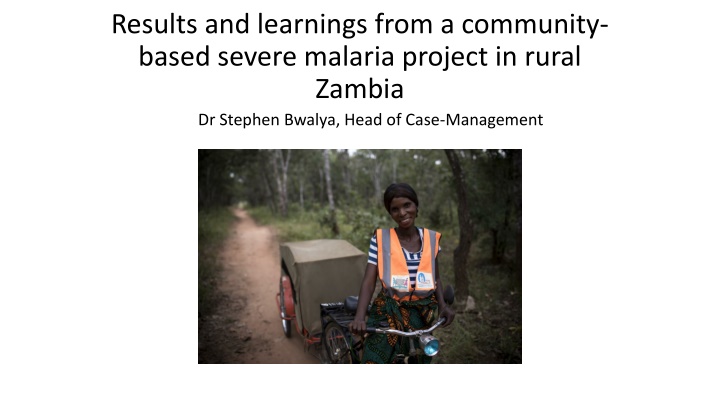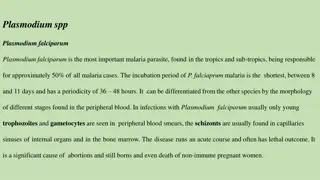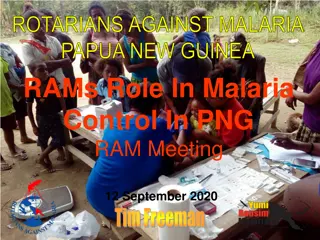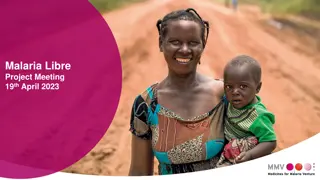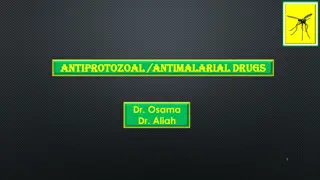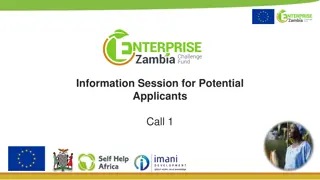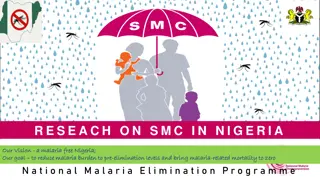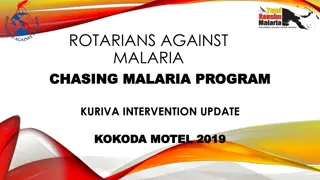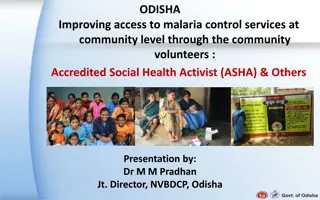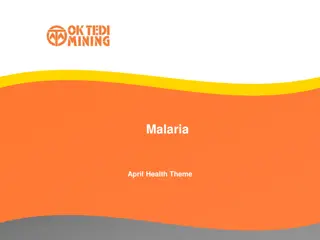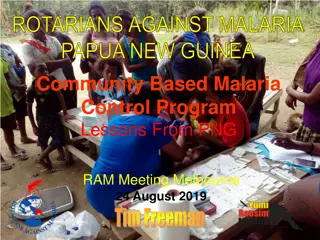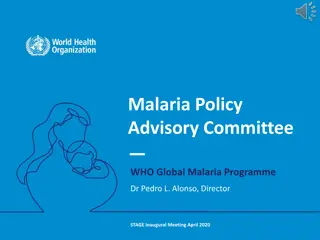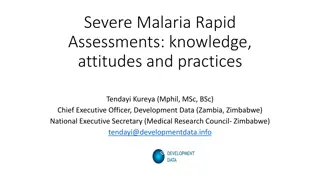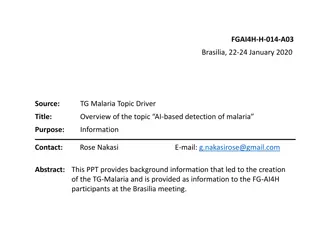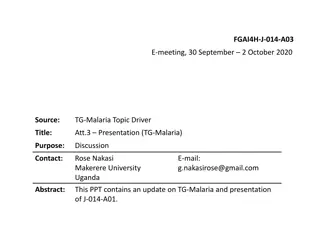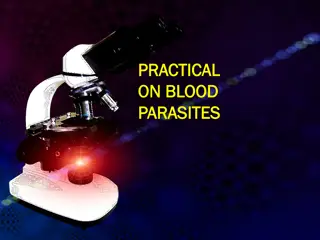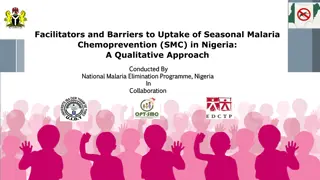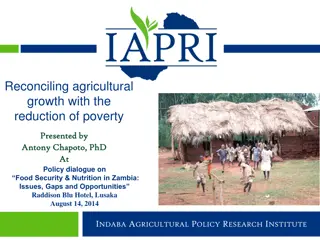Results and Learnings from a Community-Based Severe Malaria Project in Rural Zambia
Zambia's community-based severe malaria project has successfully scaled up the use of Rapid Access to Treatment (RAS) strategy, resulting in improved access to malaria case management services. Key success factors include training over 16,500 Community Health Workers (CHWs) since 2017, community mobilization, facilitated referrals, and the use of WHO prequalified products. Presence of qualified staff at health facilities, coordination with partners, evidence-based decision-making, and CHW supervision capacity have also contributed to the project's success.
Download Presentation

Please find below an Image/Link to download the presentation.
The content on the website is provided AS IS for your information and personal use only. It may not be sold, licensed, or shared on other websites without obtaining consent from the author.If you encounter any issues during the download, it is possible that the publisher has removed the file from their server.
You are allowed to download the files provided on this website for personal or commercial use, subject to the condition that they are used lawfully. All files are the property of their respective owners.
The content on the website is provided AS IS for your information and personal use only. It may not be sold, licensed, or shared on other websites without obtaining consent from the author.
E N D
Presentation Transcript
Results and learnings from a community- based severe malaria project in rural Zambia Dr Stephen Bwalya, Head of Case-Management
Introduction Zambia, through the ministry of health, strives to provide quality basic health care services as close to the family as possible To ensure universal health coverage, Zambia in 2010 adopted the Integrated Community Case Management (ICCM) strategy In 2017 the strategy was enhanced , with addition of the malaria surveillance component and the use of RAS in children under 6 years of age The adoption of RAS in the package of care was after a successful pilot in Serenje District where CHWs were trained to deploy this strategy Currently over 6,000 CHW s from communities with difficulties to access quality health care from over 45 districts have been given this life saving commodity
Key success factors that enabled responsible RAS scale-up Improvement in access to malaria case management services with over 16,500 CHW s trained since 2017 Community mobilization for program ownership and increase in intervention uptake Facilitated referrals with or without emergency transport services Follow up visits by CHW for children with severe malaria Use of WHO prequalified products only in the indicated age group
Key success factors that enabled responsible RAS scale-up Presence of qualified staff at the health facilities with capacity to continue subsequent treatment with injectable artesunate and ACTs Coordination and buy-in from partners- PMI/GF/MoH Evidence based decision making in ICCM Capacity for CHW s supervision built at HF level
CHW roll out map by district by partner as of 20th October 2021 Source/date: NMEC MRR last updated October 20th , 2021
Follow Follow- -up of children with severe malaria up of children with severe malaria In Zambia, CHWs are trained to follow up suspected severe malaria cases: Within a few hours of seeing the child to make sure that it has been taken to HF Once the child has returned from the HF Once a week for a month to check on the child's condition CHWs are trained to: Follow up the child to monitor that it has made a full recovery Check if the child is sick again Check if the child treated for severe malaria has urine the colour of coco cola Carers of children who fit the last two criteria are urged to take the child back to the HF
Challenges Emergency transport services is not available in all communities with CHW s providing RAS services Commodity challenges for uncomplicated malaria treatment for CHW s (RDT and ACT) reduces access to treatment which might increase severe malaria cases and deaths Challenges in the supply of essential commodities affecting the quality of care for severe malaria cases in children especially during this era of Covid Data capture in the HMIS
Conclusion Conclusion Zambia s experience shows that CHWs have great potential to reduce malaria morbidity and mortality provided they are trained in case management and social mobilization and fully supported in with supplies, emergency transport and supportive supervision activities Providing CHWs with a means of transport (e.g. bicycle) would help them to follow up RAS recipients 3 or more times Availability of trained staff at lower level health facilities to provide subsequent treatment with injectable artesunate is vital to the success of RAS implementation Strengthening the health system (including the community health system) is paramount to support community health care work including RAS use
